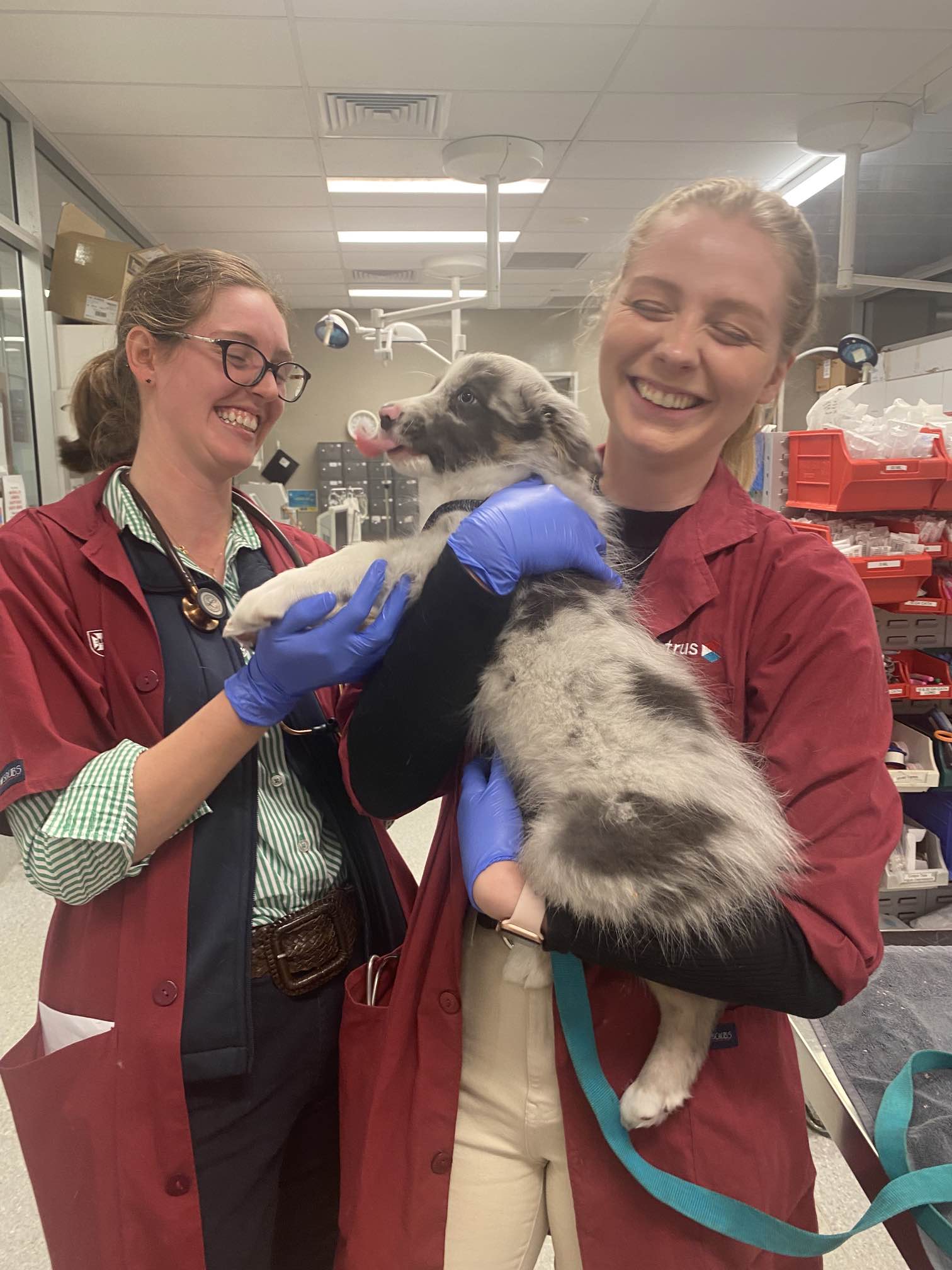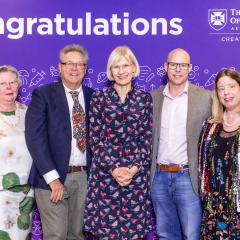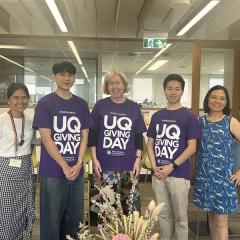
The Australian Pet Welfare Foundation estimates that approximately 100,000 adoptable and treatable dogs and cats are euthanised in pounds and shelters every year in Australia. It is an unfortunate statistic yet, sadly, thousands of relatively healthy animals face death due to overcrowding and limited resources. The rehoming of healthy animals is one way to save precious lives, but the prevention of unwanted litters through desexing is still the most effective solution to this pressing issue.
In response, the School of Veterinary Science at The University of Queensland (UQ) has been collaborating with not-for-profit organisation Combined Vets of Logan City (CVLC), situated within the grounds of Logan City Council, for several years. UQ veterinary science and veterinary technician students in their fifth year of study are placed with vets at the Logan clinic for intensive surgical training and caring for cats and dogs before they are adopted.
The students perform desexing and health procedures under the supervision of teaching surgeons, providing them with an essential clinical learning experience in preparation for their careers in vet practice.
Most animals admitted to shelters and pounds are strays, having either escaped from their homes or been abandoned by their owners. Upon arrival at the pound, the animals undergo a thorough process, including microchip scanning and documentation by the council office staff. Following this initial intake, the waiting period commences, its duration depending on whether animals are microchipped.
For cats and dogs without microchips, there is a maximum of seven days during which owners can come forward with proof of ownership to reclaim their pets. Those animals with microchips are granted up to 16 days for owners to make contact.
Regrettably, not all animals are reunited with owners, and they remain in the shelter, awaiting their fates.
The primary challenge in finding new homes for these strays and surrendered pets is ensuring each animal is desexed, undergoes a health assessment, is microchipped (or has their chip details updated), and is registered with the local council. Meeting these requirements is a critical step that enables animals to be put up for adoption. The costs associated can be substantial and pose a significant barrier in the adoption process.
Through the UQ clinical rotation program with CVLC, not only is adoption of animals facilitated, but students receive invaluable learning and clinical experience. The program's success has been nothing short of remarkable, equipping students with hands-on training in consultation, anaesthesia and clinical skills.
As well as taking care of stray cats and dogs, the Logan clinic also offers an affordable desexing service to pet owners on a health care, concession or pension card. An increase in the number of desexed animals in the community helps to reduce the number of unwanted litters and, by providing an accessible service and encouraging responsible pet ownership, the euthanasia rate of healthy puppies, kittens, cats and dogs is decreased.
UQ vet students attend the Logan clinic as part of their regular clinical rotation. They benefit from the practical nature of working in small groups and the ability to handle animals in a real clinic situation. Feedback received from students consistently rates this as one of the most valuable learning experiences of their veterinary program. Supervising UQ staff have a wealth of practical experience and provide support and training which extends beyond clinical and surgical skills.
The time taken by students and the significant increase in the use of anaesthetic agents and disposables as more animals are seen has resulted in an increase in the cost of the day-to-day running of the not-for-profit clinic. This year there is also a particularly high demand from rescue and charity organisations for more animals to be desexed. Some of these include Tails of the Forgotten Paws, Small Paws Animal Rescue Queensland and Pets in the Park.
Ideally, more treatments at the clinic could be offered at a low fee to charity organisations and pet owners in the community who need affordable options. With a larger cohort of vet students this year, there is capacity to accommodate and a strong appetite from students to participate. Donor support will make an expansion of the program possible. If you are interested in helping, please reach out to Advancement Manager, Anthea Barry, for a conversation.
See below for some testimonials from students who have participated in the program:
“I thoroughly enjoyed my three days at the pound. I learnt so much from Norbert, Jenny and Katherine in such a calm, friendly environment which made the greatest difference in my ability to take in feedback and apply it the following surgery/ day. I improved so much in my surgery skills over this time and wish we had another day there to do more!”
“Overall, I felt that Logan was an invaluable learning experience for me – the one-on-one with a clinician was really useful to develop my skills, have a chance to ask questions and actually be able to apply surgical and clinical skills (microchips, catheters). This placement gave me confidence in the knowledge I had and that I was able to do it in practice.”



